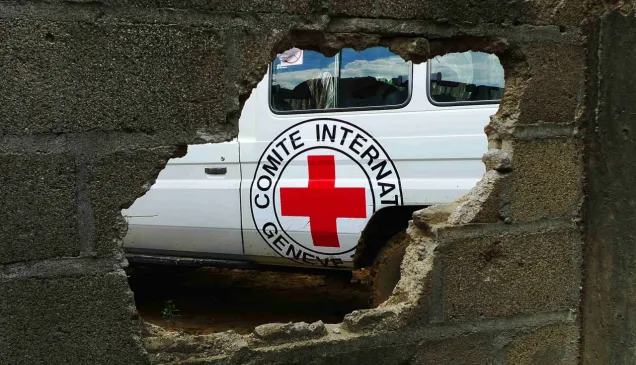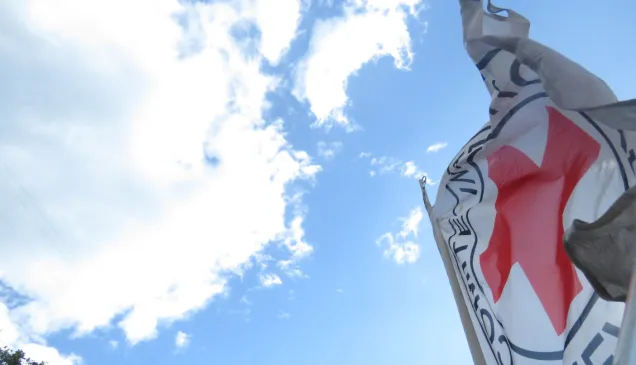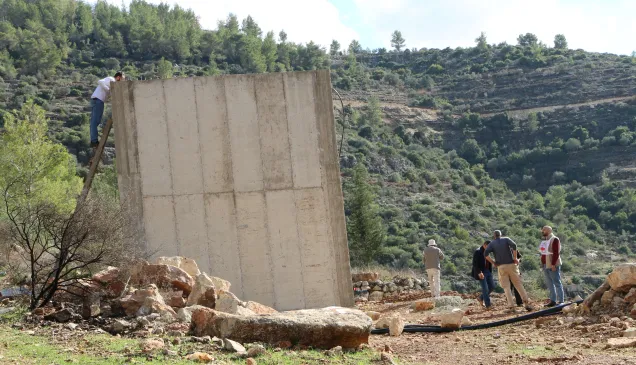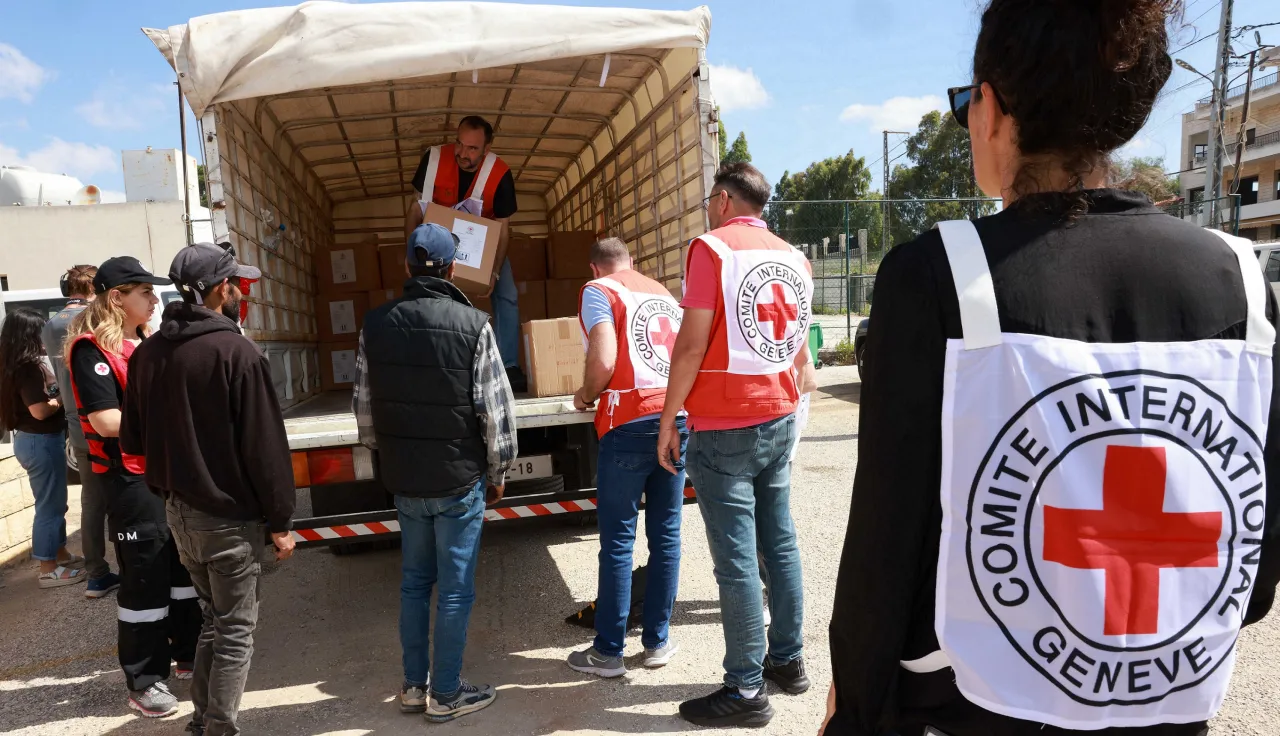
Since October 7th 2023, with the escalation of hostilities, Southern Lebanon has witnessed increased tensions and cross-border hostilities between Hezbollah and Israeli Defense Forces (IDF) that have intensified over time. While the military operations are mostly affecting the southern areas of Lebanon, the geographic scope of the attacks has expanded to reach North Bekaa Valley, Baalbek-Hermel Governorate and the capital Beirut.
The situation on the ground
Since October 7, 2023, the escalation of hostilities in Gaza has torn at the fabric of daily life. People in Southern Lebanon are facing increased tensions and relentless cross-border hostilities. What began as localized clashes has spread like wildfire, with violence now reaching as far as the North Bekaa Valley, Baalbek-Hermel Governorate, and even the heart of Beirut.
Reports suggest that more than 1,700 have been killed or injured across Lebanon. This turmoil comes at a time when the country is already crippled by a severe socioeconomic crisis. For over four years, the people of Lebanon have endured a life of uncertainty, with basic services deteriorating and institutions barely functioning. The destruction of civilian infrastructure has been widespread, with buildings and critical facilities, including hospitals, water treatment plants, and power stations, suffering extensive damage, leading to severe disruptions in essential services.
The conflict has also led to significant internal displacement, with more than 102,000 people having to flee their homes over the past 10 months. As attacks intensify and reach further into Lebanese territory, this displacement is only set to increase, further straining Lebanon's already fragile economy and social fabric.
The majority of those displaced rely heavily on agriculture and farming, sectors that have been devastated by the conflict. The future remains uncertain, but one thing is clear: the humanitarian crisis in Lebanon is deepening. With or without further escalation, the needs of the people will remain immense and urgent throughout 2024 and beyond. This is a time of profound suffering, and without immediate action, the human cost will continue to rise.
Thanks to our continued presence in Lebnon since 1967, the ICRC is in a unique position to respond quickly to the humanitarian needs caused by this latest round of hostilities. We are closely coordinating with different actors including Red Cross Red Crescent movement partners, Government of Lebanon, ministries, public authorities, governors, municipalities, and other humanitarian actors, enabling swift and effective humanitarian responses in proximity to the affected population.
The ICRC in collaboration with the Lebanese Red Cross (LRC) has launched a large humanitarian initiative to distribute food parcels to around 8,000 families across 55 regions within 5 kilometers range from the Blue Line in Southern Lebanon. This effort aims to provide much-needed relief to families affected by ongoing tensions and escalations, economic challenges, and instability in the region.
ICRC Response
Following to the escalation in southern Lebanon that began in October 2023, the ICRC’s commitment to promote the protection of lives and deliver humanitarian assistance remains unwavering. We have stepped up our emergency preparedness and response activities. Our efforts are centered on ensuring that communities affected by conflict have access to essential services including health, water, sanitation, as well as economic and food security. We also work to promote respect for International Humanitarian Law (IHL) as well as providing emergency assistance to the civilian population affected by the conflict.
Delivery of vital medical supplies:
We dispatched medications and consumables to 3 Emergency Medical Services, 12 Primary Healthcare Centers and 8 hospitals to help treat and care for the wounded.
Ensuring life-saving resources for 2,000 patients
We provided contingency stocks sufficient of treating up to 2,000 patients over a 10-day period at Rafik Hariri University Hospital.
Empowering 800 healthcare workers
We enhanced the emergency preparedness and response capabilities of 800 healthcare staff from 60 health structures.
Upholding the protection of civilians
We actively engaged with parties to the conflict, reminding them of their obligations under IHL.
Providing lifeline support to 45,565 people
We provided food assistance to 45,565 individuals (9,113 families) from 49 communities in collaboration with the Lebanese Red Cross.
Restoring access to safe water for 565,000 people
We maintained and repaired 15 pumping stations in affected areas to guarantee clean water for 565,000 individuals.
Securing systemic water supply
We installed 10 large storage tanks to ensure a steady supply of water for affected communities in Southern Lebanon.
Preserving dignity of the departed
We donated forensic items such as 1,790 body bags hospitals to ensure the departed are treated with respect and dignity.
Working with the Red Cross and Red Crescent Movement
We helped 10 hospitals/health centres run by the Lebanon branch of the Palestine Red Crescent Society to continue their daily operations with 2228,212 litres of fuel and 8 fuel tanks.
Planning ahead
The ongoing conflict is causing immense suffering, and the need for humanitarian aid is only expected to grow, potentially lasting through 2025. The situation could worsen, with more people in desperate need of help. In response, the ICRC is further scaling up its response. We are bringing in more skilled staff and boosting our emergency supplies to ensure we can reach and support those most affected. In the coming months, our priorities will be:
Maintaining life-saving health care services
We are committed to keeping vital healthcare services running through initiatives that supports hospitals, primary health care providers and prehospital/emergency medical services across the country. Despite the financial and emergency crises, the ICRC remains dedicated in providing vital resources, training, and ongoing support to ensure these medical facilities can continue saving lives despite ongoing difficulties.
Ensuring access to safe water
We are working to secure ample source of water as well as improved access to clean water for both displaced and host communities through building the capacities of local utilities and providing much-needed expertise.
Upholding access to food and essential items
We are pre-positioning food and essential items to readily support people’s basic needs in case of supply chain disruption. Additionally, we are also directing a robust cash program to help residents remaining in areas close to the conflict area, which has been hit hard by displacement and economic strain
Working to ensure better respect of international humanitarian law
We endeavour to prevent further suffering by promoting and strengthening international humanitarian law and universal humanitarian principles. Through ongoing discussions and education with a variety of actors including arms carriers, judiciary and the National Committee for IHL, we aim to ensure those essential principles are respected by all parties to the conflict.
Protecting civilians
We are maintaining our efforts to prevent the suffering of the civilian population by monitoring respect for IHL and addressing violations and protection concerns with all parties to the conflict through confidential and bilateral dialogue. Efforts will also continue to boost emergency response capacity in places of detention located in conflict-affected areas; to strengthen capacities to manage the dead in a dignified manner in mass fatality situations; to prevent family separations and disappearances.
Support to the Lebanese Red Cross and the Palestinian Red Crescent
We have increased our contributions with these national societies to enhance their capacities to act as first responders. We are also offering safer access trainings and improving coordination efforts among all movement partners to ensure the most effective response in emergencies.
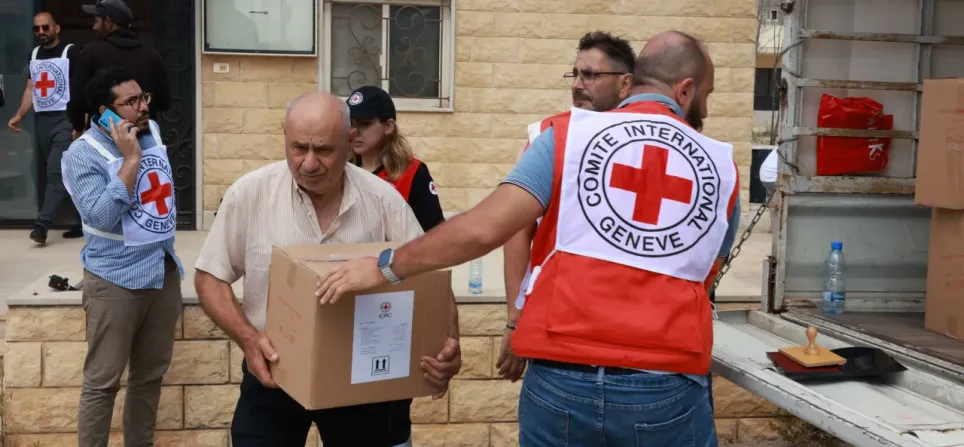
URGENT HELP NEEDED IN LEBANON
The ongoing escalations of armed conflict in the south of Lebanon have devastated children, families and communities. Families are struggling to find food, clean water, essential medical care. Please donate to support our work in this region now.
How you can help
Donations to the ICRC will be used to support our humanitarian activities in Lebanon. Within our humanitarian mandate, the ICRC is ready to support emergency health providers to respond to the influx of wounded. We are working to support our Red Cross Red Crescent Movement partners at this time.
Donations can be made online at icrc.org/en/donate/emergency-lebanon or by bank transfer, selecting the relevant account for your preferred currency.
Thank you.
Bank address: UBS SA, P.O. BOX 2600, 1211 GENEVA 2, Switzerland Swift code (BIC): UBSWCH ZH80A
| BANK ACCOUNT | IBAN | |
| CHF | 240-FP100883.2 | CH97 0024 0240 FP10 0883 2 |
| USD | 240-C0129986.4 | CH52 0024 0240 C012 9986 4 |
| EUR | 240-C0129986.5 | CH25 0024 0240 C012 9986 5 |
| GBP | 240-C0183929.1 | CH73 0024 0240 C018 3929 1 |
Thank you for your life-saving support.

